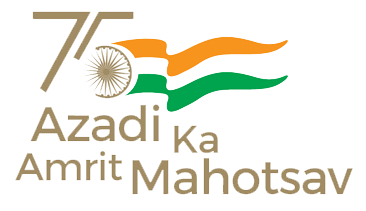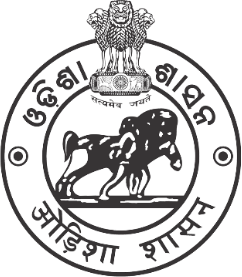Eligibility
- Pass in +2 or equivalent examination/any Degree with age limit 23 years as on academic session in each year.
- Candidates must appear for a written test and an interview. The test will be based on aptitude and general topics related to Art and Culture of India and Odisha.
- The merit list will be drawn on the basis of the marks secured from the test examination
- Written test of 20 marks,
- Aptitude test of practical (a) Still life study of 30 marks (b) Composition from the memory of 30 marks and career (i.e.) 20 percentile of qualifying (+2 pass) examination marks .
Types of Courses:
|
Types of Courses |
Short Form |
| Core Course | CC |
|
Discipline Specific Elective Course Ability Enhancement Compulsory Courses Skill Enhancement Courses Generic Elective Courses |
DSE AEC SEC GE |
| Audit Courses | AU |
| Modular Courses | MC |
| Extension Activity | EA |
Credits:
- Credit defines the quantum of content/syllabus prescribed for the course. It may be a unit prescribed for a course and is determined by the number of hours of instruction required per week. Thus, in each course credits will be assigned on the basis of the number of hours required per week for lectures/tutorials/lab work/field work to complete the course in a single semester.
- 1 credit = 1 hour of direct teaching per week
- 1 credit = 2 hours of lab work/field work/project work per week
Thus, 1 credit course requires 1 hour per week during a 15 week semester and accordingly a 3 credit or 4 credit courses requires 3 or 4 hours per week during a 15week semester.
- A course of study may have only lecture (L) component or only practical/practice (P) Component or combination of any two or all the three components. The third being Tutorial (T) component.
- The total credits earned by a student at the end of semester upon successfully completing the course is L+T+P.
Course Components (LTP):
Each level of certification for a given duration has a typical structure of courses of study with well- defined name for each course/paper, instruction hours per week translated into credits, marks for comprehensive continuous assessment and term end examination as percentage of total marks/grades.
- Lecture Sessions are the current mode of delivering the content
- But here course offered is delivered through three components of teaching learning process:
- Lecture Session-L
- Tutorial Session-T
- Practical/Practice Session-P
However, Tutorial Session Consists of participatory discussion/desk work/ problem solving/ brief seminar on a topic or any such other novel method that makes learners absorb and assimilate more effectively the contents delivered in a lecture session.
Normally, the tutorial sheets prepared by the teacher are distributed in advance to help learner prepare for interaction systematically.Practical/Practice session consists of hands on experience/ laboratory experiments/ Field Studies/Case studies that equip students to acquire the much required skill component
- The credit pattern of the course shall be indicated as L: T: P format. For example, a 4 credit course format could be:
- A course of 3 credits may be so designed that; all 3 credits are assigned for theory or 2 credits for theory and 1 credit for lab work/ field work/ project work or 1 credit each for Theory, Tutorial and lab work/ field work/ project work.
- A course of 2 credits may be designed either 2 credits for theory or 2 credits for lab work/ field work/ project work.
- The Concerned Board of Studies shall choose the convenient credit pattern for every course based on the requirement. However, generally a full course shall be 3 or 4 credits.
Internal Assessment marks-20 marks:
The student’s performance shall be examined by the faculty in-charge of extension activities along with the head/ head (i/c)/co-ordinator/ chairperson of the concerned department / activity and any one faculty member of outside the concerned department / activity on the following parameters.
- 40% of marks for regularity of attendance, discipline and participation in Classes/camps/ seminars programe in the Department /District/ State/University activities (40% of 20 marks = 8 marks).
- 60% of marks for the examination based on method and materials of concern core Subject by the class teacher (60% of 20 marks =12 marks).
Practical papers (External Examiner Assessment marks-80 marks)
The student’s performance shall be examined by the External Examiner duly appointed by the University in the following parameters.
- 25% of marks for viva-voce test based on subject paper. (25% of 80 marks = 20 marks)
- 75% of marks for practical work & display executed by the candidate / examination work along with synopsis based on concept, skill, experimentation or execution of method and materials of concern core subject by the external examiner. (75% of 80 marks =60 marks)
Theory papers (External Examiner Assessment marks-80 marks):
- The student’s performance shall be examined by the external examiner/question setter duly appointed by the University in the following parameters.
- 25% of marks from objective type question on subject paper.(25% of 80 marks =20 marks).
- 75% of marks from Subjective type question on subject paper.(75% of 80 marks =60 marks).
Student Counseling:
To help the students in planning their course of study and for general advice on the academic programme, the Head of the Department will attach a certain number of students to a member of the faculty who shall function as faculty mentor for those students throughout their period of study. Such faculty mentor shall advice the students, give suggestions for the courses to be taken by the students during each semester.
Duration:
A semester(s) may be declared a zero semester(s) in case of a student who could not continue with the programme during that period due to illness and hospitalization or due to accepting a foreign scholarship/fellowship or any other valid reason accepted by the Vice- Chancellor subject to the fulfillment of requirements as laid down by the relevant rules. Such zero semester(s) shall not be counted for calculation of the duration of the programme in case of such a student.
Registration:
Each student, on admission shall be assigned to a mentor who shall be a permanent Faculty member of the respective department. The faculty mentor shall advise her/him about the academic programe and counsel on the choice of courses consideration the academic background and student’s career objectives.
Attendance:
- Students are required to attend at least 75% of the classes actually held, seminars, seasonal and practical in each courses of study as may be prescribed and at least 60% in the redo course. Attendance shall not be mandatory for students repeating only the end semester examination.
- Students absenting from classes continuously for 10 days and more will be liable to have his name removed from the rolls of the Institution. Absence on medical reasons should be supported by a certificate which has to be submitted with 5 working days after recovery/ re-joining after illness. (P.S: All Medical certificates obtained from physicians outside CUTN should be validated by the medical officer or equivalent of CUTN. The Validated Medical certificate(s) submitted after 5 working dates shall not be considered by CUTN)
- Students who opt to audit a course within the Department or outside, provided (s)he satisfies the prerequisites, are also required to have 75% of attendance.
- No student who has less than 75% attendance in any course shall be permitted to attend the end-semester examination and (S)he shall be given grade of FA-failure due to lack of attendance.
- (S)he shall be asked to redo that course by enrolling for it the next time it is offered time.
- Papers set for each examination will follow the regulations and syllabi in force at the
- Condonation of shortage of attendance below 75% may be considered by the Vice Chancellor on valid medical reasons and other reasons such as personal calamities on case to case basis.
Assessment and Examination:
The Continuous Internal Assessment and End Semester Examination, will form the basis for Evaluating/ grading the student performance in each paper/ course.
In 1st and 2nd semester there will not be a special practical examination. All works executed in the class will be treated as Studio Practices and examination papers. In every odd semesters (3rd, 5th and 7th) the candidate will submit their synopsis and execute their works (studio practice), and In every even semesters (4th,6th and 8th) there will be a special examination for the Practical subjects the candidate will attend in one practical examination from core subject and execute their works (studio practice) as examination paper. These works will be examined by the external examiners in presence of internal examiners duly appointed by the University through display- cum- examination.
If any candidate failed in 7th/8th semester, he/she needs to appear in the special back paper examination to be held within one month of the publication of result.





